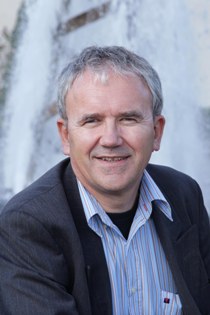
Education matters, but not as much as schooling when it comes to securing a job and decent salary – or so it has been for many centuries.
At the World Innovation Summit on Education (WISE) held in Doha earlier this month, one speaker claimed that the most educated people in the world are the poor, who have learnt to survive daily, every day, with little or no resources.
Their acquired learning enables them to survive the daily struggle to feed and clothe themselves and their family. What they lack is connectivity and access to the networks, which schooling has, to date, given us.
Will the scale of the growth in IT transform the relationship between schooling and personal advancement?
Access to educational opportunities outside of formal schooling has exploded through the developments in Information Technology, which are transforming the lives of virtually every person on this planet. Some of these educational opportunities have been highlighted at the WISE conferences in Doha over the past three years, which I attended.
In 2000, Massachusetts Institute of Technology (MIT) broke entirely with convention in the University sector by making available their educational resources on a web-based platform – all for free. In launching MIT Open Courseware (OCW), they re-wrote the book on education, and then opened up that book for everyone at no cost.
The take-up of MIT’s online resources to date has surpassed 100 million – both students and teachers – and their radical redefining of teaching and learning is heralded as among the boldest, bravest and most ground-breaking educational disruptions of the modern era.
On a smaller – yet in some ways larger – scale, is Prof Sugata ‘Hole in the Wall’ Mitra, Professor of Education at Newcastle University, and the inspiration behind ‘Slumdog Millionaire’.
Contending that the Internet, computers and children all share inherently similar cognitive processes, about twelve years ago Mitra decided to test this hypothesis. He took a computer, made an opening in a wall in a slum in New Delhi, pushed a computer into it and connected it to broadband.
Upon returning after two months, he found an 8-year-old boy and a 12-year-old girl playing a game on the computer. When they saw him, they said “we want a faster processor and a better mouse”.
Mitra’s subsequent declaration that “teachers are now no longer required to be repositories of knowledge” and that children can learn to teach themselves and solve often complex matters if equipped and empowered with the necessary technological tools, has turned much traditional thinking on its head, in more ways than one.
The Hole in the Wall initiative has now installed more than 500 computers across India and Africa to enable poor children to learn without formal teachers. Over a million children now use the computers on a regular basis.
Universal internet access has also facilitated the development of Connexions, a content platform that enables the free and open use of high-quality educational materials by a global community of authors, teachers, and students.
Connexions, which is currently used by two million people per month, unbundles traditional textbooks into small modular blocks, like Lego, that each deal with a single conceptual topic. These blocks can be combined and customized in different ways.
The system demonstrates that knowledge is dynamic: the ever-changing blocks can be linked in a web, support interactive and immersive elements, and also encourage participation by a global community of students, educators, and practicing experts.
All of the modular blocks and the underlying software platform are free and open-sourced in order to promote the broadest possible use and innovation.
Connexions’ users form communities to create new, interactive educational content at all levels, to write and translate content into languages other than English, and to encourage a flow of ideas and applications between the academy and the “real world.”
Rather than stagnating in a textbook, content in Connexions is improved upon through a series of feedback loops, engaging both learners and teachers.
Connexions’ global author community has expanded to encompass the humanities, social sciences, natural sciences, and engineering at all educational levels.
Connexions now hosts over 18,000 modules collected into over 1,100 e-text collections in 40 languages. It is used monthly by more than two million people in over 190 countries.
Far more impactful than a conventional textbook, Baraniuk’s “Signals and Systems” Connexions e-text has been used over five million times to date.
What will the effect of this explosion in non-formal internet based access to education have on the formal schooling system, which has formed the basis of access to employment and career progression for centuries?
Access to power and influence is currently mediated through the formal schooling system. Given the huge costs associated with formal education systems, how long will the current model continue to operate when faced with the tidal wave of educational access available online?